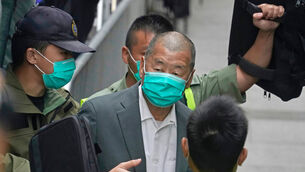Economic leaders in bid to rescue global trade talks
Pacific Rim leaders today pledged political will and flexibility to rescue faltering global trade talks after forging an agreement to curb climate change they hope will influence a new global strategy on the problem.
“There has never been a more urgent need to make progress” in World Trade Organisation talks, said the leaders of the 21-member Asia-Pacific Economic Cooperation forum at the end of their annual summit. APEC’s economies account for nearly half of global trade and just over half the world’s economy.














